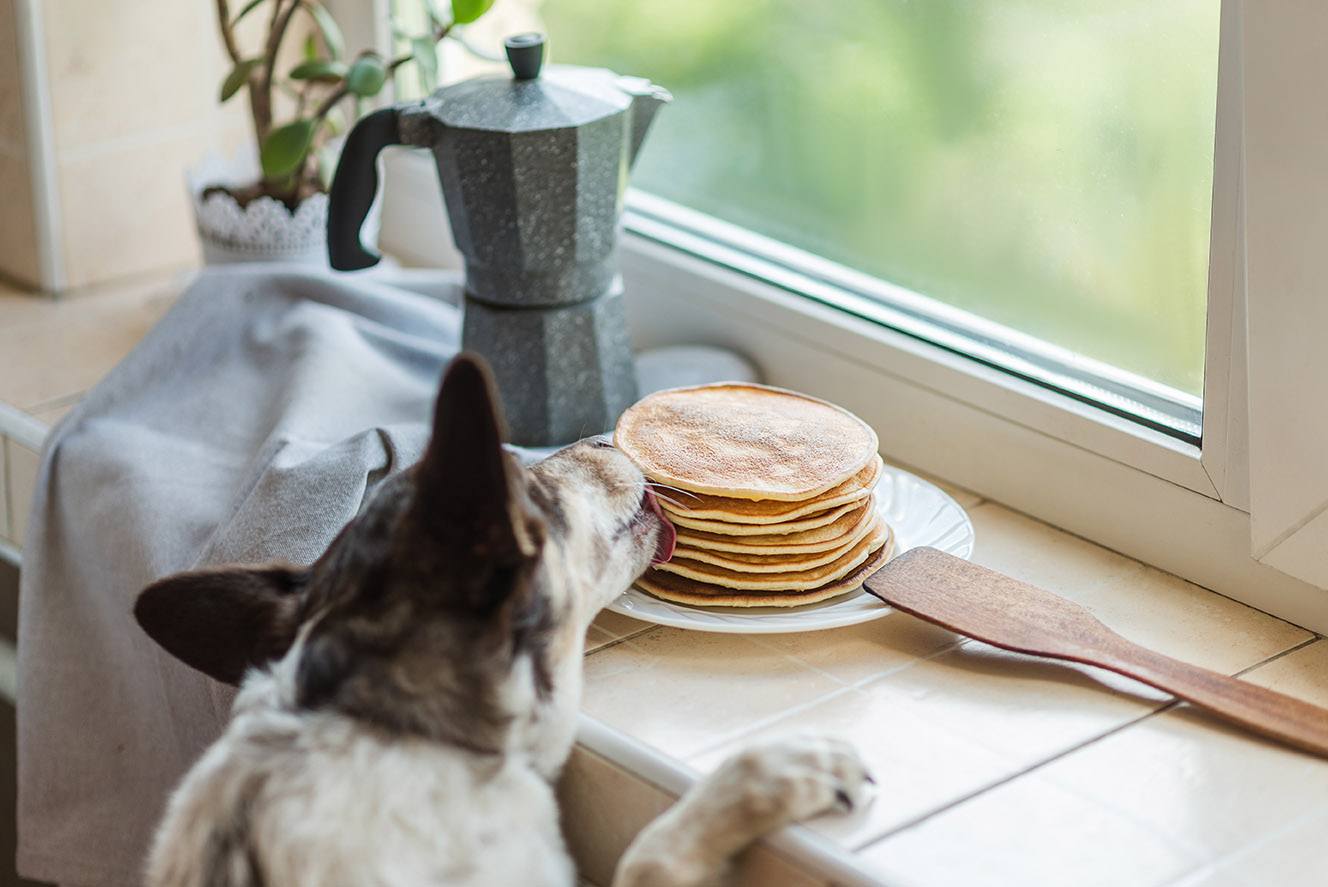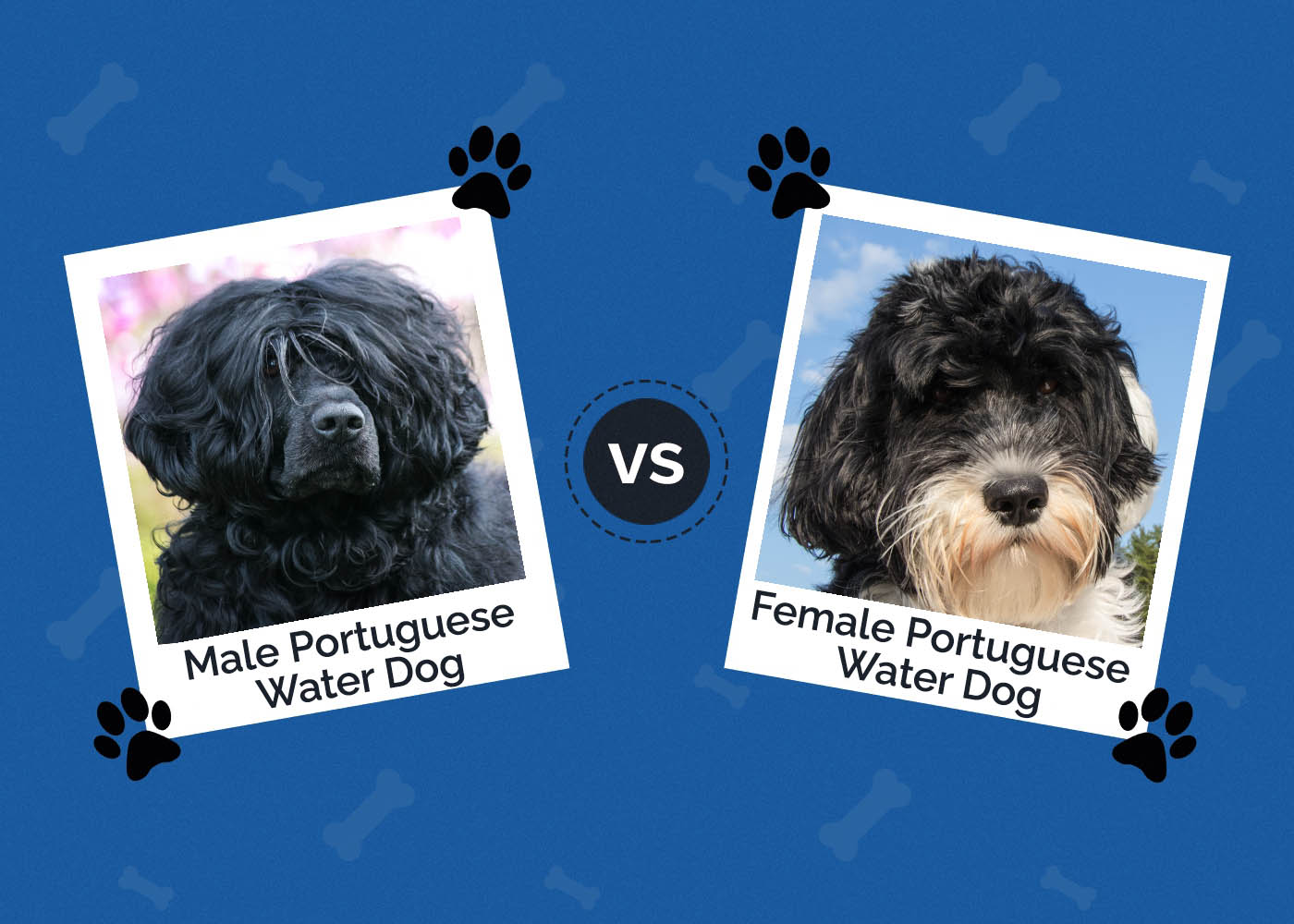Can Dogs Eat Pancakes? Vet-Reviewed Facts, Considerations & Alternatives

Updated on

For most of us, our dogs are beloved members of the family. We don’t like for them to feel left out, so we often share scraps of our meals with our four-legged friends. It’s a common practice that doesn’t usually cause too much harm. But not everything you eat should be shared with your dog. Those delicious, fluffy pancakes, for instance, are not the best choice for your pooch.
Are Pancakes Poisonous for Dogs?
So, are pancakes going to hurt your dog if you feed one to it? Well, no. They’re not poisonous for your dog. But that doesn’t mean you should start shoving short stacks down Fido’s throat. Even though your dog may approve with glee, it’s not a great choice.
Pet problems like obesity have raged out of control in recent years. Many dogs are incredibly overweight, and the consumption of human food is a definite contributing factor. Regularly feeding your dog foods such as pancakes can directly contribute to making your dog fat, overweight, sedentary, and even obese.
Worse, diabetes has even become a serious problem for dogs in recent years. Calorie-loaded and nutrient-deficient foods like pancakes are certainly contributing to such concerns.
So even though pancakes may not be poisonous for dogs, they’re not going to help them out. That said, a completely plain pancake with no syrup or additives is not going to immediately hurt your dog.

The Most Dangerous Parts of Pancakes
Though a plain pancake on its own may not pose much of a threat to your dog’s health, many of the other items that are commonly served on pancakes are much more of an issue.
Let’s start with chocolate chips. Everyone knows that chocolate is toxic to dogs, but chocolate chips are commonly thrown into pancakes to make them sweeter. Giving this to your dog is asking for trouble!
What about syrups? Most people top their pancakes with thick maple syrup, which is full of tons of calories, mostly all sugar. This stuff isn’t even healthy for us to eat in large amounts, so it’s certainly not good for your dog who’s even more susceptible to obesity, a known risk factor for diabetes and many other diseases.
Another common pancake topping that can be hazardous for your dog is nuts. Some types of nuts can be toxic to your dog, even if the pancake surrounding it is not.
Raisins also make their way into and onto pancakes — another food that’s toxic for your pup to eat.
But the list just keeps on going. Most pancakes come with milk and butter on them. Most dogs are lactose intolerant, which means that they can not properly digest milk, and its ingestion causes them gas, discomfort, and other gastrointestinal issues. Likewise, dietary indiscretions and high-fat meal consumption have been linked to the development of pancreatitis.
Feeding Your Dog Pancakes
We’ve established that pancakes aren’t the best food to feed your beloved furry friend. But at the same time, they’re not toxic or immediately detrimental to your dog’s health, so the occasional treat of a small piece of plain pancake probably isn’t a big deal.
As mentioned, it’s mainly the things that are commonly added to pancakes or eating too many pancakes in one occasion that can be dangerous for your dog. So, what might you share with your dog while you enjoy your pancakes?
For starters, you could try smearing a little peanut butter on a lick mat. Keep it to a minimum though because peanut butter is still high in fat. Also, be sure to find peanut butter that’s completely free of xylitol, which can be deadly for dogs.
You can also try adding other fruits that are less harmful. Bananas and apples are great choices that won’t make your dog sick.

Conclusion
Most people love a good pancake breakfast. Heck, your dog would too! But the truth is, those pancakes aren’t particularly healthy for us, let alone our dogs. Your dog is susceptible to having gastrointestinal issues if eating many in a day. If fed pancakes repeatedly, they’re likely to become overweight or obese, and that has detrimental consequences to their health, making them more susceptible to developing diseases such as diabetes or arthritis.
A small piece of plain pancake on its own isn’t going to hurt your dog. But make sure that the pancake is completely plain before you feed it to your dog. It’s also not going to add on to their nutrition, so instead, you could opt to share healthy pancake toppings over a lick mat, but make sure they’re dog-safe, like blueberries, pieces of apples, or slices of banana with a little bit of peanut butter.
The main thing to avoid is the sugary syrups, milk, fatty butter, and toxic nuts and chocolate that often adorn our breakfast foods. Not only can these be toxic for your pup, but they can also contribute to an overweight and unhealthy dog that isn’t living its best life.
- You may also want to read: Can Dogs Eat Tangerines? Vet-Reviewed Nutrition Facts & Safety Guide
Featured Image Credit: Pixabay











